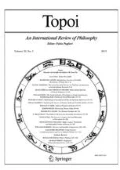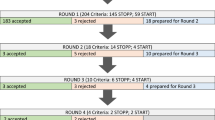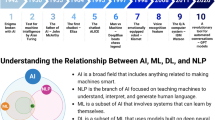Abstract
Multimorbidity, the presence of multiple health conditions that must be addressed, is a particularly difficult situation in patient management raising issues such as the use of multiple drugs and drug-disease interactions. Clinical Guidelines are evidence-based statements which provide recommendations for specific health conditions but are unfit for the management of multiple co-occurring health situations. To leverage these evidence-based documents, it becomes necessary to combine them. In this paper, using a case example, we explore the use of argumentation schemes to reason and combine evidence-based recommendations from clinical guidelines, expected effects, conflicts stemming from said recommendations, and preferences regarding treatment goals. We compare the results of reasoning using the schemes for practical reasoning and argument from negative consequences in the Carneades Argumentation System with those of ASPIC-G, an extension of the artificial intelligence system ASPIC+.







Similar content being viewed by others
Notes
There are also weights shown between all other argument nodes and their conclusions; these have values either 1 or 0 depending on whether the argument is accepted or not, respectively.
References
Cook DA, Sherbino J, Durning SJ (2018) Management reasoning beyond the diagnosis. JAMA 319(22):2267–2268. https://doi.org/10.1001/jama.2018.4385
Čyras K, Toni F (2016) ABA+: assumption-based argumentation with preferences. Principles of knowledge representation and reasoning. In: Proceedings of the 15h international conference, to appear, (Kr), pp 553–556
Čyras K, Oliveira T (2019) Resolving conflicts in clinical guidelines using argumentation. In: Proceedings of the 18th international conference on autonomous agents and multiagent systems, pp 1731–1739
Dung PM (1995) On the acceptability of arguments and its fundamental role in nonmonotonic reasoning, logic programming and n -person games. Artif Intell 77(2):321–357. https://doi.org/10.1016/0004-3702(94)00041-X
Fraccaro P, Arguello Casteleiro M, Ainsworth J, Buchan I (2015) Adoption of clinical decision support in multimorbidity: a systematic review. JMIR Med Inform 3(1):e4. https://doi.org/10.2196/medinform.3503
Gordon TF (2010) The Carneades argumentation support system. In: Reed C, Tindale CW (eds) Dialectics, dialogue, and argumentation. College Publications, London
Gordon TF, Prakken H, Walton D (2007) The Carneades model of argument and burden of proof. Artif Intell 171(2007):875–889
Grace A, Mahony C, O’Donoghue J, Heffernan T, Molony D, Carroll T (2013) Evaluating the effectiveness of clinical decision support systems: the case of multimorbidity care. J Decis Syst 22(2):97–108. https://doi.org/10.1080/12460125.2013.780320
Grando M, Glasspool D, Boxwala A (2012) Argumentation logic for the flexible enactment of goal-based medical guidelines. J Biomed Inform 45(5):938–949
Hunter A, Williams M (2012) Aggregating evidence about the positive and negative effects of treatments. Artif Intell Med 56(3):173–190. https://doi.org/10.1016/j.artmed.2012.09.004
Kokciyan N, Sassoon I, Young A, Chapman M, Porat T, Ashworth M, Sklar E (2018) Towards an argumentation system for supporting patients in self-managing their chronic conditions. In: Joint Workshop on Health Intelligence (W3PHIAI), (ii), pp 2017–2020
Modgil S, Prakken H (2014) The ASPIC+ framework for structured argumentation: a tutorial. Argum Comput 5(1):31–62. https://doi.org/10.1080/19462166.2013.869766
Oliveira T, Dauphin J, Satoh K, Shusaku T, Novais P (2018) Argumentation with goals for clinical decision support in multimorbidity. In: AAMAS ’18 Proceedings of the 17th international conference on autonomous agents and multiagent systems, pp 2031–2033
Peleg M (2013) Computer-interpretable clinical guidelines: a methodological review. J Biomed Inform 46(4):744–763. https://doi.org/10.1016/j.jbi.2013.06.009
Samwald M, Fehre K, de Bruin J, Adlassnig K-PP (2012) The Arden Syntax standard for clinical decision support: experiences and directions. J Biomed Inform 45(4):711–718. https://doi.org/10.1016/j.jbi.2012.02.001
Sutton D, Fox J (2003) The syntax and semantics of the PROforma guideline modeling language. JAMA 10(5):433–443. https://doi.org/10.1197/jamia.M1264.j
Terenziani P, Montani S, Bottrighi A, Torchio M, Molino G, Correndo G (2004) The GLARE approach to clinical guidelines: main features. Stud Health Technol Inform 101(3):162–166. https://doi.org/10.3233/978-1-60750-944-8-162
Verheij B (2005) Virtual arguments: on the design of argument assistants for lawyers and other arguers. T.M.C. Asser Press, The Hague
Walton D, Reed C, Macagno F (2008) Argumentation schemes. Cambridge University Press, Cambridge
Funding
Douglas Walton was supported by Social Sciences and Humanities Research Council of Canada Insight Grant number 435-2012-0104. Tiago Oliveira was supported by JSPS KAKENHI Grant Number JP18K18115. Ken Satoh was supported by JSPS KAKENHI number 17H06103.
Author information
Authors and Affiliations
Corresponding author
Additional information
Publisher's Note
Springer Nature remains neutral with regard to jurisdictional claims in published maps and institutional affiliations.
Rights and permissions
About this article
Cite this article
Walton, D., Oliveira, T., Satoh, K. et al. Argumentation Analytics for Treatment Deliberations in Multimorbidity Cases: An Introduction to Two Artificial Intelligence Approaches. Topoi 40, 373–386 (2021). https://doi.org/10.1007/s11245-020-09701-6
Published:
Issue Date:
DOI: https://doi.org/10.1007/s11245-020-09701-6




